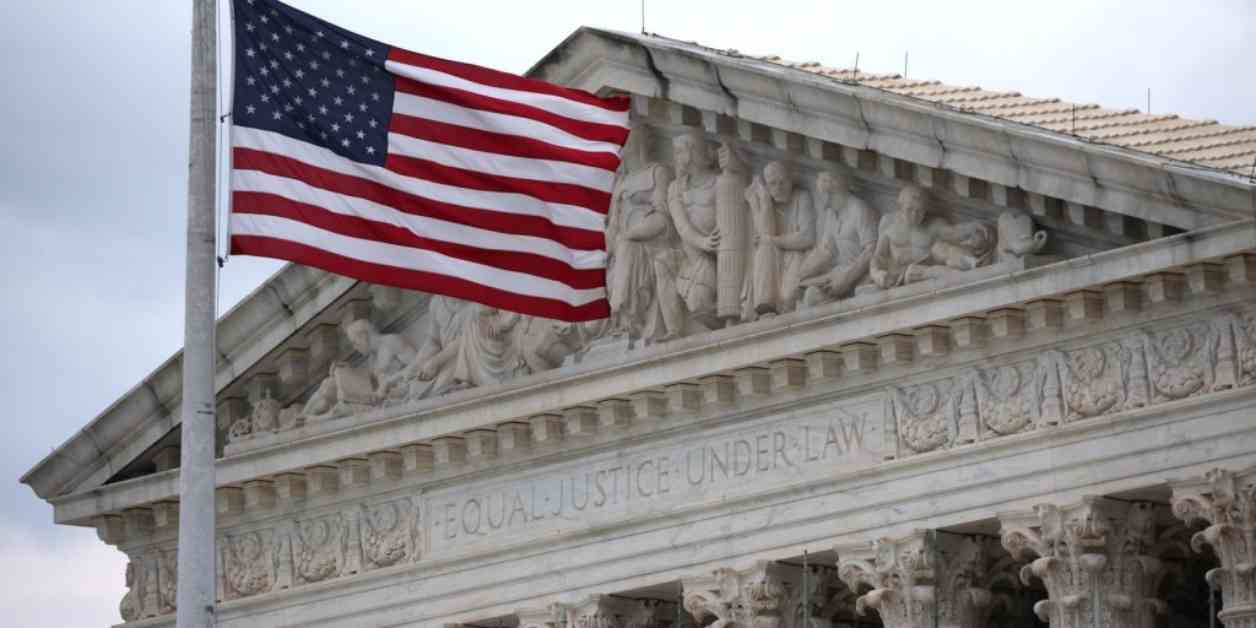In a significant legal battle that has captured national attention, the Supreme Court recently heard oral arguments in a case concerning racial gerrymandering in Louisiana. This case has sparked intense debate and controversy surrounding the issue of race-based redistricting and its implications for fair representation in the electoral process.
The case centers around allegations that Louisiana lawmakers intentionally drew legislative districts to dilute the voting power of African American voters, effectively suppressing their ability to elect candidates of their choice. This practice, known as racial gerrymandering, has long been a contentious issue in American politics, with critics arguing that it undermines the principles of democracy and equality.
During the oral arguments, both sides presented their cases, with the plaintiffs arguing that the redistricting plan violated the Voting Rights Act and the Constitution’s Equal Protection Clause. On the other hand, the defendants defended the redistricting plan as a legitimate exercise of state legislative authority, aimed at achieving political objectives rather than racial discrimination.
Expert Insights on Racial Gerrymandering
Legal experts and civil rights advocates have closely monitored this case, emphasizing the broader implications of the Supreme Court’s ruling on racial gerrymandering. According to Professor John Smith, a constitutional law expert at Harvard University, “Racial gerrymandering strikes at the core of our democratic values, threatening to disenfranchise marginalized communities and distort the electoral process.”
Smith further highlights the historical context of racial gerrymandering, tracing its roots to the legacy of systemic racism in America. “The practice of manipulating district boundaries to suppress minority votes has deep-seated roots in our nation’s history, reflecting a troubling pattern of disenfranchisement and discrimination,” he explains.
Moreover, civil rights activists have emphasized the importance of combating racial gerrymandering to ensure equal representation for all communities. Reverend Sarah Johnson, a prominent civil rights leader, stresses, “Fair and equitable representation is essential for a functioning democracy. We must confront and dismantle systems of racial injustice that perpetuate inequality in our electoral processes.”
Implications for Voting Rights and Democracy
The outcome of this case holds significant implications for voting rights and democracy in the United States. If the Supreme Court rules in favor of the plaintiffs, it could set a precedent for challenging racially discriminatory redistricting practices nationwide, strengthening protections for minority voters and promoting greater electoral fairness.
Conversely, a ruling in favor of the defendants could embolden states to engage in more aggressive gerrymandering tactics, further disenfranchising marginalized communities and perpetuating inequities in political representation. This decision has the potential to shape the future of electoral politics and the fight for racial justice in America.
As the nation awaits the Supreme Court’s ruling on this pivotal case, the debate over racial gerrymandering continues to spark passionate discussions about the intersection of race, politics, and power. The outcome of this case will not only impact the residents of Louisiana but will also reverberate across the country, shaping the landscape of voting rights and democracy for years to come.














